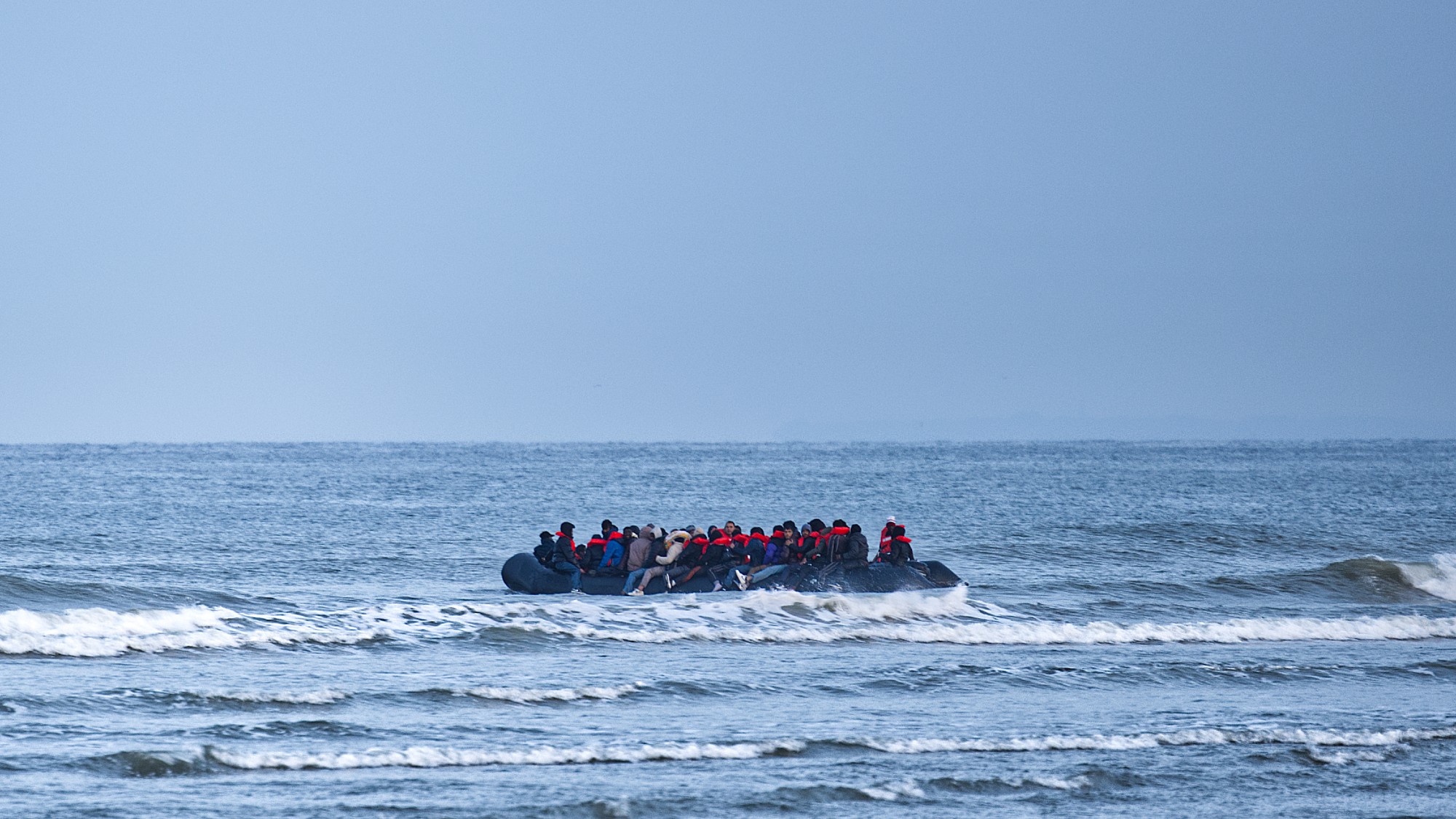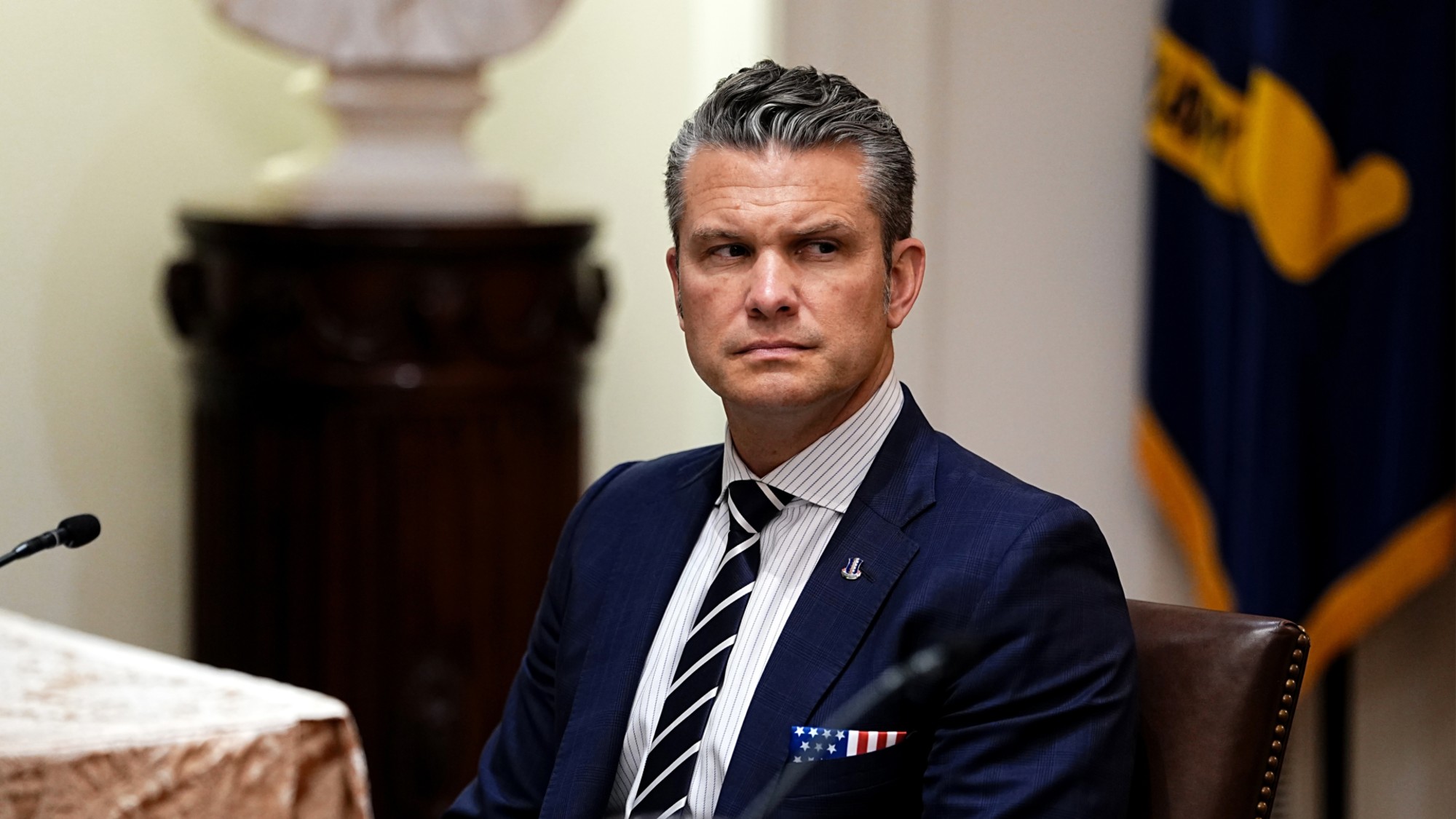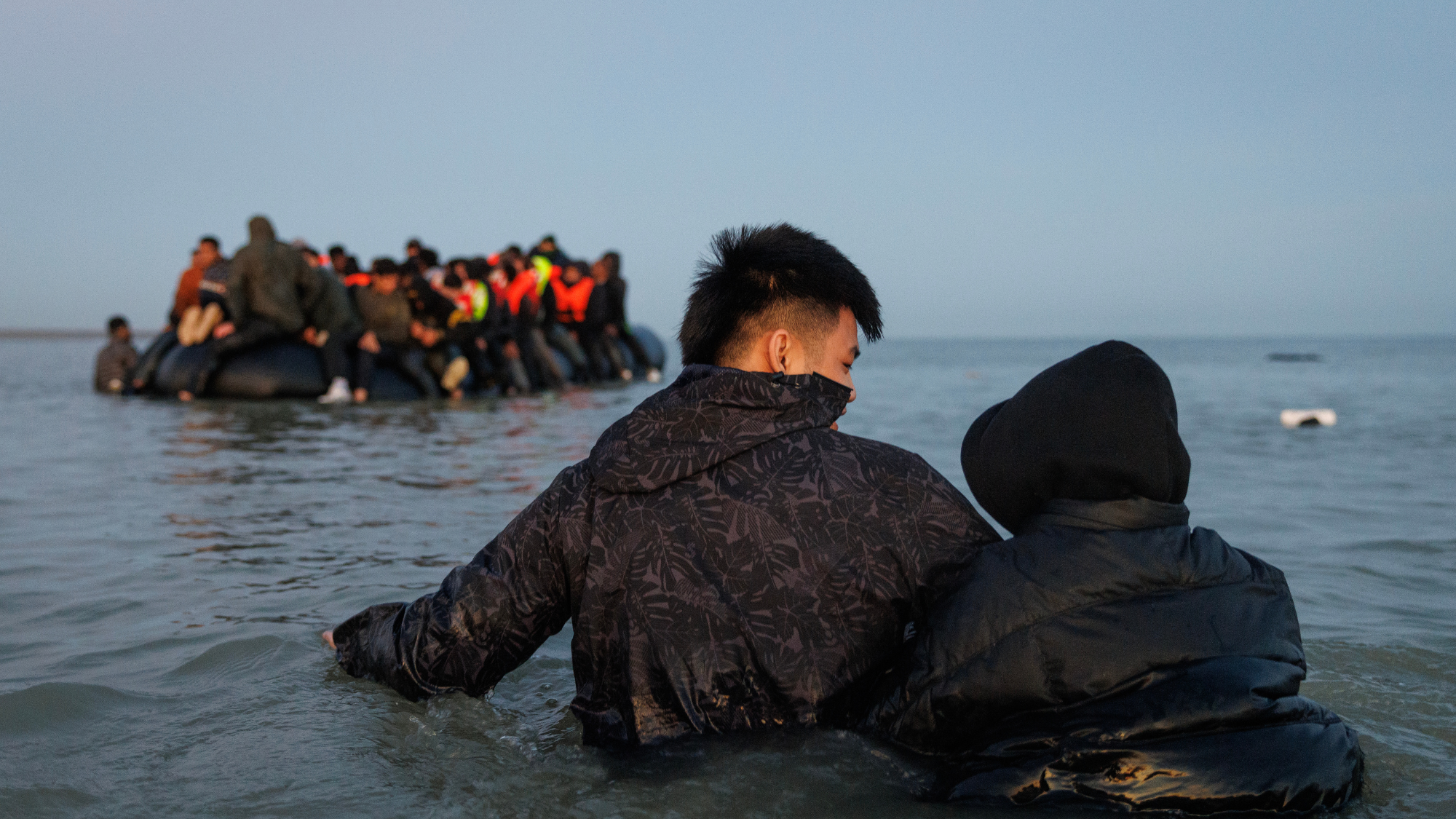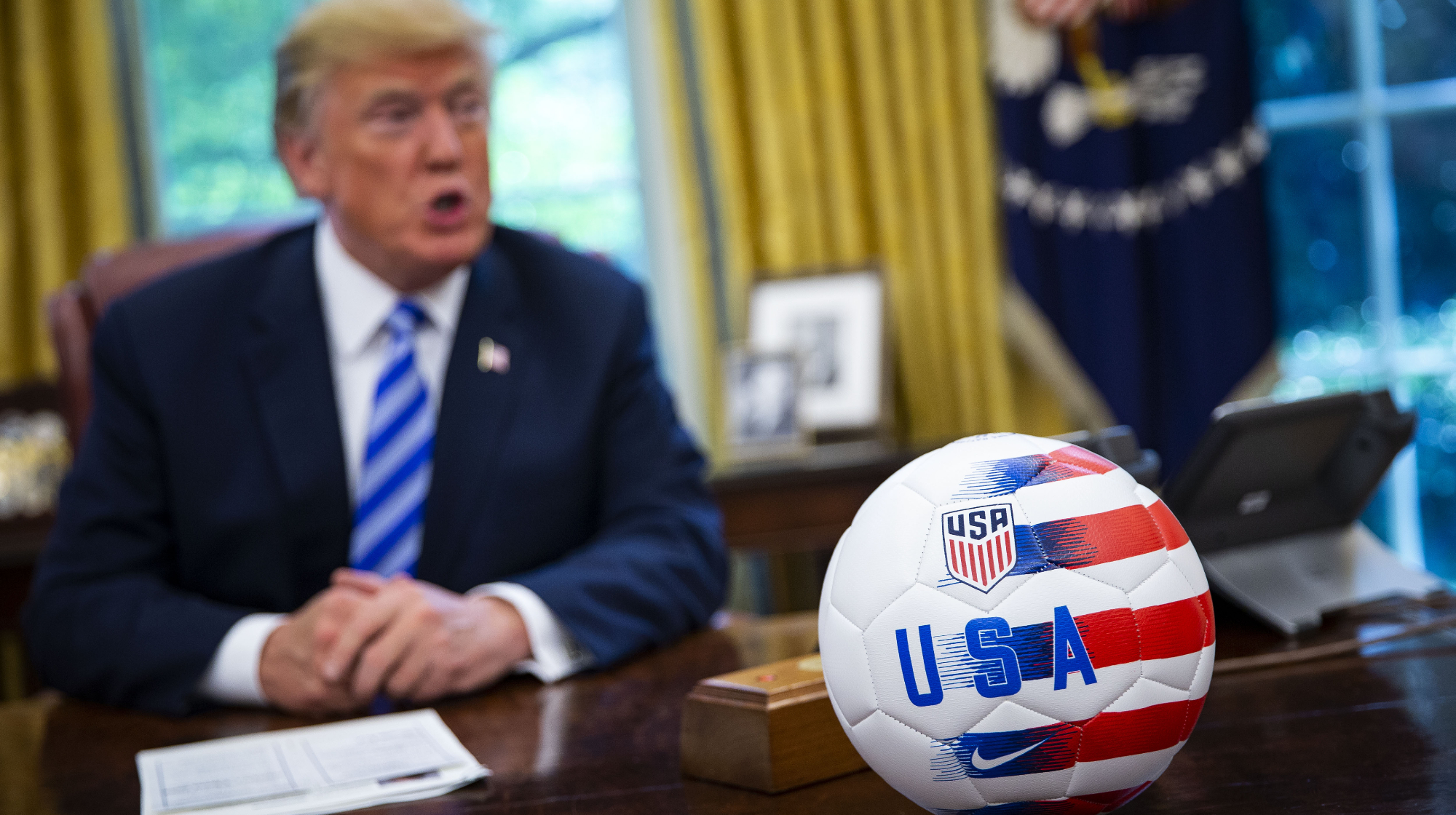Politics and football pundits: should they stay on the sidelines?
Gary Lineker and Gary Neville have both faced criticism for voicing political opinions

A free daily email with the biggest news stories of the day – and the best features from TheWeek.com
You are now subscribed
Your newsletter sign-up was successful
BBC bosses are having a “frank conversation” with Gary Lineker after the Match of the Day host compared the government’s asylum policy to Nazi Germany, the corporation has said.
The 62-year-old former England player spoke out in response to a video in which Home Secretary Suella Braverman outlined plans to “effectively ban anyone arriving via an illegal route from claiming asylum in the UK”, said the BBC.
“Good heavens, this is beyond awful,” Lineker tweeted. After a Twitter challenger accused him of being “out of order”, the TV pundit responded: “This is just an immeasurably cruel policy directed at the most vulnerable people in language that is not dissimilar to that used by Germany in the 30s, and I’m out of order?”
The Week
Escape your echo chamber. Get the facts behind the news, plus analysis from multiple perspectives.

Sign up for The Week's Free Newsletters
From our morning news briefing to a weekly Good News Newsletter, get the best of The Week delivered directly to your inbox.
From our morning news briefing to a weekly Good News Newsletter, get the best of The Week delivered directly to your inbox.
‘Talk football, not politics’
Braverman told BBC One’s Breakfast programme that she was “disappointed” by Lineker’s comments. “I think it’s unhelpful to compare our measures, which are lawful, proportionate and indeed compassionate, to 1930s Germany,” she said.
Other Tory MPs expressed outrage to The Telegraph. Craig Mackinlay, the MP for South Thanet, said that Lineker’s comments were a “step too far” and that the BBC should sack him. Jonathan Gullis, MP for Stoke-on-Trent North, urged the broadcaster to “stand up” to Lineker and “remind him his job is to talk football, not politics”.
This isn’t the first time Lineker has “waded into politics, despite BBC impartiality rules”, said the paper, which reported that some BBC managers were “furious” about his latest comments after he was told last year by director general Tim Davie to stay away from politics. In October, Lineker was found to have broken the national broadcaster’s impartiality rules after he tweeted negative comments about the Conservative Party.
But impartiality issues aside, other BBC bosses have reportedly “defended Lineker’s right to express his political opinions on the grounds that he does not work in news or current affairs”.
A free daily email with the biggest news stories of the day – and the best features from TheWeek.com
Shadow home secretary Yvetter Cooper told Radio 4’s Today programme that although she didn’t agree with Lineker’s Nazi comparison, any decision to take action against him should be left to the BBC.
“He is somebody who has spoken out strongly on lots of different issues,” she said. “People who feel strongly should be able to speak out and say the things that they feel.”
‘Pundits can’t be apolitical’
ITV pundit Gary Neville also came under fire for comparing human rights abuses in Qatar to working conditions of key workers in the UK.
Speaking on ITV Sport ahead of the World Cup final, the former Manchester United right-back said that the poor treatment of workers “shouldn't happen with the wealth that exists” in Qatar. “It shouldn't happen with the nurses in our country either where our nurses are having to fight for an extra pound or two pounds,” added Neville, who joined the Labour Party last year.
Neville has been “coy” about speculation that he might be planning a career in politics, wrote Will Lloyd for UnHerd. But if the former football star is hoping to become a Labour MP, he may discover that “this game is different to the one he played on the pitch”.
“There he could be as rattish as he wanted,” said Lloyd, but “politics turns out to be more difficult than tweeting out opinions”.
But there’s no pretending that sport isn’t political, wrote Katie Edwards for The Independent in November, during the international football tournament. “Football is political and where we hold world tournaments is definitely political. Players and pundits can’t – and shouldn’t – be apolitical or even pretend to be,” Edwards argued.
Although the “media moralising” around Qatar may have come across as “sanctimonious lip service to some”, the World Cup was watched by “millions”. Sports commentators like Neville and Lineker have “public profiles and serious influence”, she continued, and “it would be a sad indictment of them if they didn’t use their platform to highlight” ethical issues.
-
 Tourangelle-style pork with prunes recipe
Tourangelle-style pork with prunes recipeThe Week Recommends This traditional, rustic dish is a French classic
-
 The Epstein files: glimpses of a deeply disturbing world
The Epstein files: glimpses of a deeply disturbing worldIn the Spotlight Trove of released documents paint a picture of depravity and privilege in which men hold the cards, and women are powerless or peripheral
-
 Jeff Bezos: cutting the legs off The Washington Post
Jeff Bezos: cutting the legs off The Washington PostIn the Spotlight A stalwart of American journalism is a shadow of itself after swingeing cuts by its billionaire owner
-
 ECHR: is Europe about to break with convention?
ECHR: is Europe about to break with convention?Today's Big Question European leaders to look at updating the 75-year-old treaty to help tackle the continent’s migrant wave
-
 ‘It’s critical that Congress get involved’
‘It’s critical that Congress get involved’Instant Opinion Opinion, comment and editorials of the day
-
 Asylum hotels: everything you need to know
Asylum hotels: everything you need to knowThe Explainer Using hotels to house asylum seekers has proved extremely unpopular. Why, and what can the government do about it?
-
 The end of ‘golden ticket’ asylum rights
The end of ‘golden ticket’ asylum rightsThe Explainer Refugees lose automatic right to bring family over and must ‘earn’ indefinite right to remain
-
 What’s behind Europe’s sharp drop in illegal migration?
What’s behind Europe’s sharp drop in illegal migration?Today's Big Question Fall in migrant crossings won’t head off tougher immigration clampdowns
-
 Judge blocks Trump's asylum ban at US border
Judge blocks Trump's asylum ban at US borderSpeed Read The president violated federal law by shutting down the US-Mexico border to asylum seekers, said the ruling
-
 Trump's LA immigration showdown casts shadow over upcoming World Cup
Trump's LA immigration showdown casts shadow over upcoming World CupIN THE SPOTLIGHT Amid a massive anti-immigrant detention push, analysts have begun to worry about the United States' plan to host one of the world's biggest athletic events
-
 Asylum: Only white Afrikaners need apply
Asylum: Only white Afrikaners need applyFeature Trump welcomes white Afrikaner farmers while shutting down the asylum program for non-white refugees